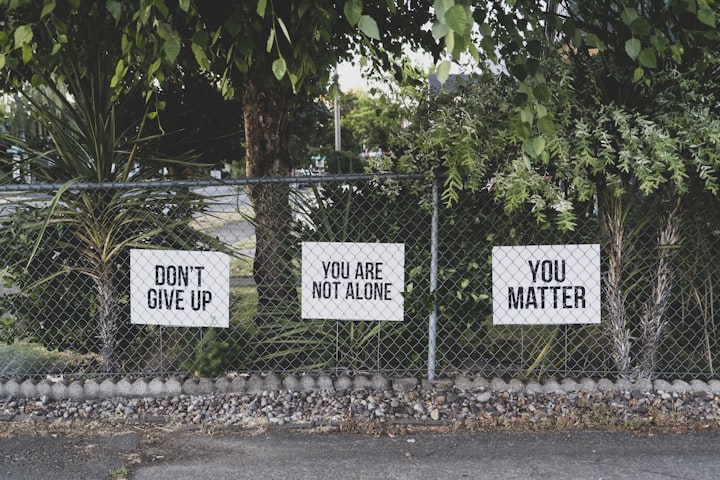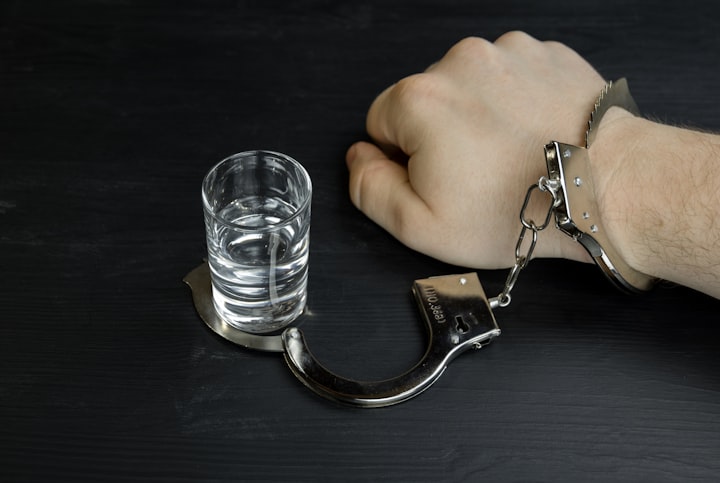Important things to know about drug rehabilitation
Things to know about drug rehabilitation

Drug addiction is a serious problem that can severely affect an individual's life, their loved ones, and their community. The effects of drug addiction can range from health problems to legal issues and can even lead to death. However, there is hope for those struggling with addiction through drug rehabilitation. In this article, we'll explore the important things to know about drug rehabilitation, including the benefits of seeking professional help, the different types of rehab programs available, the drug rehabilitation process, and much more.
Understanding drug addiction and rehabilitation
Drug addiction is a chronic disease that affects the brain and behaviour of an individual. Addiction is often characterized by compulsive drug seeking and use despite its harmful consequences. The effects of drugs on the brain can cause changes in behaviour, mood, and decision-making skills. Addiction is a complex disease that requires specialized treatment to overcome.
Drug rehabilitation is a process that helps individuals overcome drug addiction. It is a comprehensive approach that includes medical, psychological, and behavioral interventions to address the physical, emotional, and social aspects of addiction. It is designed to help individuals overcome their addiction and regain control of their lives.
Drug rehabilitation is not a one-size-fits-all approach. The treatment is tailored to the individual's unique needs and goals. It is essential to understand that drug rehabilitation is a lifelong process that requires commitment and dedication from the individual.
Benefits of drug rehabilitation
Drug rehabilitation has several benefits for individuals struggling with addiction. The primary benefit of drug rehabilitation is that it helps individuals overcome their addiction and regain control of their lives. The treatment provides the necessary support, resources, and guidance to help individuals break free from addiction and maintain long-term sobriety.
Other benefits of drug rehabilitation include improved physical health, improved mental health, improved relationships, and reduced risk of relapse. The treatment can also help individuals develop healthy coping mechanisms to deal with stress and other triggers that may lead to drug use.
Types of drug rehabilitation programs
There are several types of drug rehabilitation programs available, each with its unique approach to the treatment of addiction. The different types of programs include:
Inpatient rehabilitation programs
Inpatient rehabilitation programs, also known as residential programs, provide 24-hour care and support to individuals struggling with addiction. The treatment is provided in a structured environment and includes medical, psychological, and behavioral interventions.
Outpatient rehabilitation programs
Outpatient rehabilitation programs are designed for individuals who do not require 24-hour care and support. The treatment is provided on an outpatient basis, and individuals attend therapy and counseling sessions on a regular basis.
Intensive outpatient programs
Intensive outpatient programs provide a more intensive level of care than traditional outpatient programs. The treatment is provided on an outpatient basis, and individuals attend therapy and counseling sessions several times a week.
Partial hospitalization programs
Partial hospitalization programs provide a higher level of care than outpatient programs but are less intensive than inpatient programs. The treatment is provided on an outpatient basis, and individuals attend therapy and counseling sessions several times a week.
The drug rehabilitation process
The drug rehabilitation process typically includes several stages, including detoxification, therapy, and aftercare. The process is designed to help individuals overcome their addiction and maintain long-term sobriety.
Detoxification
Detoxification is the first stage of the drug rehabilitation process. It involves removing drugs and alcohol from the individual's system. Detoxification can be a difficult and uncomfortable process, and it is essential to do it under medical supervision.
Therapy
Therapy is an essential component of the drug rehabilitation process. It is designed to help individuals address the underlying psychological and emotional issues that may have contributed to their addiction. Therapy can be provided on an individual or group basis and can include behavioral therapies, such as cognitive-behavioral therapy (CBT), and family therapy.
Aftercare
Aftercare is the final stage of the drug rehabilitation process. It is designed to help individuals maintain their sobriety and prevent relapse. Aftercare can include support groups, such as Alcoholics Anonymous (AA) or Narcotics Anonymous (NA), and ongoing therapy.
Choosing the right drug rehabilitation center
Choosing the right drug rehabilitation center is essential for the success of the treatment. It is essential to choose a center that provides a comprehensive approach to treating addiction and has a good track record of success.
When choosing a drug rehabilitation center, it is essential to consider factors such as the type of program, the qualifications of the staff, the amenities offered, and the cost of treatment. It is also essential to consider the location of the center and the level of support provided to individuals and their families.
Common challenges during drug rehabilitation
Drug rehabilitation can be challenging, and individuals may encounter several challenges during treatment. Some of the common challenges include:
Withdrawal symptoms
Withdrawal symptoms can be uncomfortable and difficult to manage. It is essential to undergo detoxification under medical supervision to manage withdrawal symptoms.
Cravings
Cravings can be intense and can lead to relapse. It is essential to develop healthy coping mechanisms to deal with cravings.
Emotional and psychological issues
Emotional and psychological issues, such as depression and anxiety, can be challenging to manage during drug rehabilitation. It is essential to address these issues through therapy and counseling.
Coping mechanisms for drug addicts after rehabilitation
After drug rehabilitation, individuals may encounter several challenges as they adjust to their new sober lifestyle. It is essential to develop healthy coping mechanisms to deal with stress and other triggers that may lead to drug use. Some healthy coping mechanisms include:
Exercise
Exercise can help reduce stress and anxiety and improve physical health.
Meditation
Meditation can help reduce stress and anxiety and improve emotional health.
Support groups
Support groups, such as AA or NA, can provide individuals with the necessary support and guidance to maintain their sobriety.
Support systems for drug addicts and their families
Drug addiction can have severe consequences on an individual's life and their loved ones. It is essential to have a support system in place to help individuals and their families through the recovery process. Support systems can include:
Family therapy
Family therapy can help families understand addiction and develop healthy coping mechanisms to deal with it.
Support groups
Support groups, such as Al-Anon or Nar-Anon, can provide families with the necessary support and guidance to cope with the effects of addiction.
The cost of drug rehabilitation
The cost of drug rehabilitation can vary depending on the type of program, the length of treatment, and the amenities offered. It is essential to consider the cost of treatment when choosing a drug rehabilitation center. However, it is essential to remember that the cost of treatment should not be the only factor considered. It is essential to choose a center that provides a comprehensive approach to the treatment of addiction and has a good track record of success.
Conclusion
Drug addiction is a serious problem that can have severe consequences on an individual's life and their loved ones. However, the best deaddiction centre in India provides the necessary support, resources, and guidance to help individuals overcome addiction and reclaim a healthy, fulfilling life. In this article, we've explored the important things to know about drug rehabilitation, including the different types of rehab programs available, the benefits of seeking professional help, the drug rehabilitation process, and much more. Whether you're seeking help for yourself or a loved one, understanding the basics of drug rehab can make all the difference in achieving long-term success.
Visit our website, https://zorbawellness.com/delhi.php for more details.





Comments
rohitt Singh is not accepting comments at the moment
Want to show your support? Send them a one-off tip.